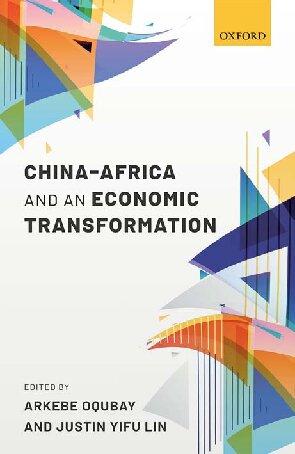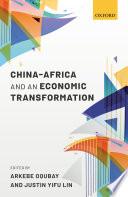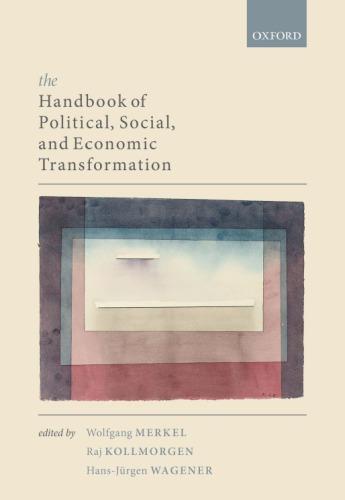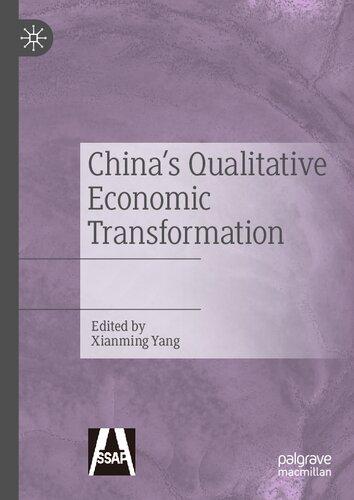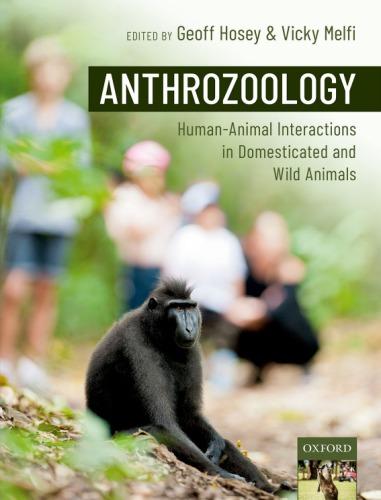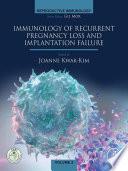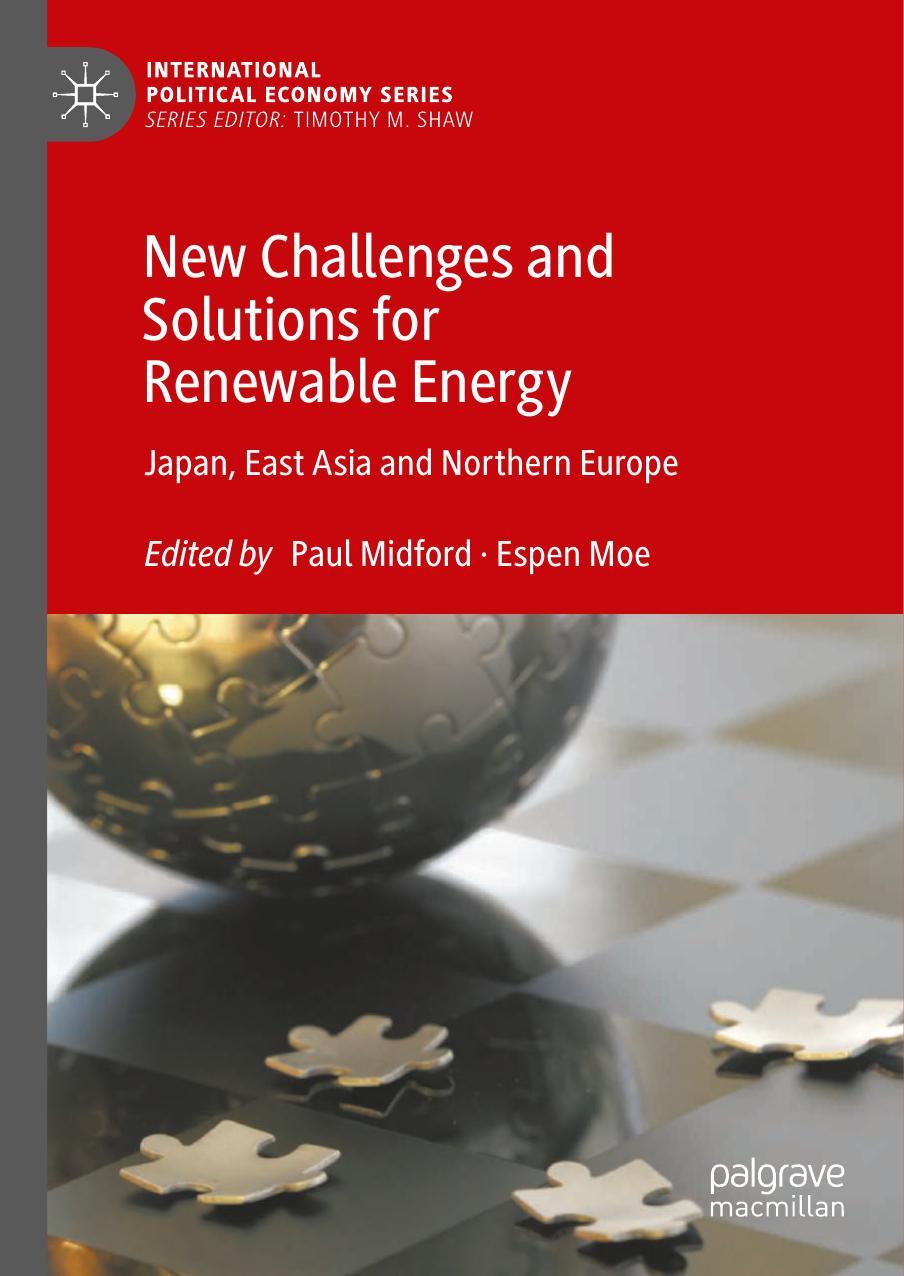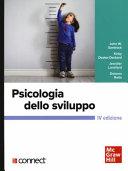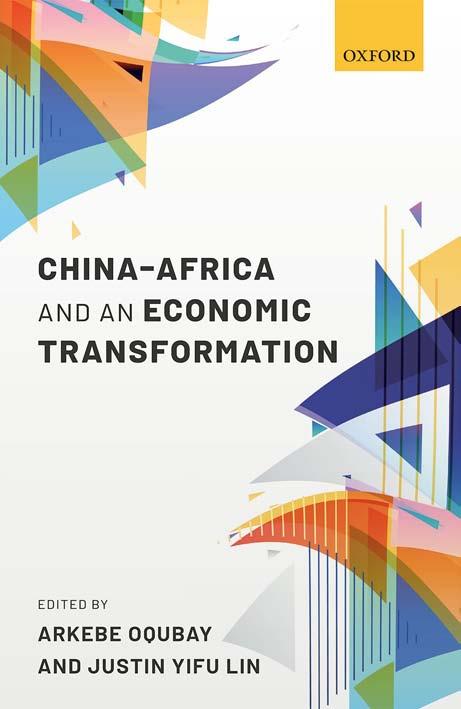https://ebookmass.com/product/china-africa-and-an-economictransformation-arkebe-oqubay/
Instant digital products (PDF, ePub, MOBI) ready for you
Download now and discover formats that fit your needs...
China-Africa and an Economic Transformation
https://ebookmass.com/product/china-africa-and-an-economictransformation/
ebookmass.com
The Handbook of Political, Social, and Economic Transformation Wolfgang Merkel
https://ebookmass.com/product/the-handbook-of-political-social-andeconomic-transformation-wolfgang-merkel/
ebookmass.com
China's Qualitative Economic Transformation 1st Edition Xianming Yang (Editor)
https://ebookmass.com/product/chinas-qualitative-economictransformation-1st-edition-xianming-yang-editor/
ebookmass.com
Anthrozoology: Human-Animal Interactions in Domesticated and Wild Animals Geoff Hosey And Vicky Melfi (Eds.)
https://ebookmass.com/product/anthrozoology-human-animal-interactionsin-domesticated-and-wild-animals-geoff-hosey-and-vicky-melfi-eds/
ebookmass.com
Online Sex Talk and the Social World: Mediated Desire Chrystie Myketiak
https://ebookmass.com/product/online-sex-talk-and-the-social-worldmediated-desire-chrystie-myketiak/
ebookmass.com
Immunology of Recurrent Pregnancy Loss and Implantation Failure 1st Edition Joanna Kwak-Kim (Editor)
https://ebookmass.com/product/immunology-of-recurrent-pregnancy-lossand-implantation-failure-1st-edition-joanna-kwak-kim-editor/
ebookmass.com
When
All Light Fails Randall Silvis
https://ebookmass.com/product/when-all-light-fails-randall-silvis/
ebookmass.com
New Challenges and Solutions for Renewable Energy : Japan, East Asia and Northern Europe 1st Edition Paul Midford
https://ebookmass.com/product/new-challenges-and-solutions-forrenewable-energy-japan-east-asia-and-northern-europe-1st-edition-paulmidford/
ebookmass.com
Psicologia dello sviluppo+connect IV Edition John W. Santrock
https://ebookmass.com/product/psicologia-dello-sviluppoconnect-ivedition-john-w-santrock/
ebookmass.com
Jenna Tests the Waters Elizabeth Doyle Carey
https://ebookmass.com/product/jenna-tests-the-waters-elizabeth-doylecarey/
ebookmass.com
China
–AfricaandanEconomicTransformation
Praiseforthebook
‘Thisbook’saccessibleup-to-dateassessmentontheevolvingtradeandinvestmentrelationsbetweenChinaandAfricaisawelcomecontributiontoa field thatisunder-studied.TheasymmetryinAfrica-Chinarelationsisrecognised andhonestlyaddressed,includinginsightsintogovernancearrangements. LinandOqubay’sbookisacademicallyrigorous,andalsooffersimmensely practicalguidancetoChineseandAfricanstakeholdersonhowtobuildthis partnershipgoingforward.’
DrMiriamAltman,PhD,CommissionerintheSouthAfrican NationalPlanningCommission
‘Thisisanextremelyimportantvolume.InthechatteronChinaandAfrica, theChineseandAfricansaretheveryonesoftenleftout.Theeditorsthemselvesrepresentadeparturefrom “beingspokento” byaWesternworldwith itsowndistinctinterests.Theyhaveassembledasetofchaptersofdeep insightsintocollaborationinspecificcountriesandwhichspeaktoacomplex situationthatindicatesachangedworldbecauseofChinaandAfrica.’
StephenChan OBE,ProfessorofWorldPolitics, SOASUniversityofLondon
‘ThisbookcomesatacriticalmomentinChina-Africarelations,asboth sidesexplorewaystoreachtheirpartnershippotential.The2018FOCAC BeijingSummitlaunchedanambitiouscooperationagendainsupportof Africa ’ sdevelopment,asencapsulatedinAgenda2063.Wealsoagreedto advancesharedprioritiesontheglobalstage.TheAfricanUnioniscommittedtoworkingwithChinaonourjointobjectivestowards “ buildingan evenstrongercommunitywithasharedfuture ” .Aswemoveforward,this book,whichbringstogethervariousintellectualcontributions,isauseful resourcethatcapturestheconcreteachievementsofthispartnershipand highlightstheopportunitiesforevengreaterimpacttothebene fi tofthe twopartners. ’
MoussaFakiMahamat,Chairpersonofthe AfricanUnionCommission
‘ArkebeOqubayandJustinYifuLinhaveassembledarangeofeminent scholarsfromacrosstheglobetoupdatethedebateononeofAfrica’spartners
thatisheretostay:China.Africancountries’ relationswithChinaareevolving,solidifying,intensifyinganddiversifying – andtheyrequireconstant learningandadaptationtounderstand.Withthisnuancedbook,theauthors illustratethatChineseengagementisnopanaceatoAfricancountries’ development,yettheChinesepositivenarrativeofAfricaisafreshwindfromthe eastthatcanbeharnessedforhome-grownstrategicaction.Akeyreadfor scholarsandpolicy-makersalike!’
SvenGrimm,HeadofProgrammeatGerman DevelopmentInstituteandAssociateProfessor, StellenboschUniversity
‘Amustread – abrilliantup-to-datereviewofAfrica-Chinaeconomicrelationshipsandhowtheyhaveevolvedoverthelast25years,duringthesurgeof China’sowndevelopment.ThebookanalyseshowAfrica-Chinarelationships contrastwithpastandpresentAfrica’seconomicrelationshipwiththeWest, bringingoutthepositivesandnewopportunitiesoftradewithChinaaswellas thenegativesandpossiblefutureproblems,suchasrisingdebtandtradedeficit gaps.Thechaptersareanalysedbyadistinguishedpanelofwell-placedauthors, throwinginterestinglightonwhatAfricaandotherscanlearnfromChina’sown accelerateddevelopment.Theresultisanimportantdocumentwhichdeserves theattentionofnationalandinternationalpolicymakersinAfrica,theWestand ChinaaswellasstudentsandanalysistsfollowingChina-Africanrelations.’
SirRichardJolly
,HonoraryProfessorandResearchAssociate, InstituteofDevelopmentStudies,UK
‘Ifyouareapublicorprivateentrepreneur,oranyonewithavisiontobuildmore prosperousnationsandbusinessesacrosstheAfricancontinentinthenext 50years,thenthisfascinatingbookisamust-read.Clearly,China’sabilityto transformitseconomy,liftnearly1-billionpeopleoutofpoverty,andshapeglobal technologicaladvances allinaperiodoflessthan50years isinspiringand instructiveforAfrica.Itshowsthatsuchatransformationispossible.Theeditors andauthorsdoastellarjobofshowinghowmorestrategicapproachesbyAfrican countries,thatnavigatethedynamicandcomplexconditions,areurgently requiredtounlockunprecedentedeconomicvalueacrossthecontinentandensure mutualeconomicbenefitgoingforward.Whetheringovernmentortheprivate sector,anyonewitharealcommitmenttothesustainableandprosperousfutureof both,willbewisetocarefullystudythisvolumeandgleanactionableinsightsfrom itshistoricallygroundedandintellectuallyrobustanalysis.’
StriveMasiyiwa,FounderEconet
‘Acompellingandcogentwork, China-AfricaandanEconomicTransformation offersanopportunitytoengageleadingpolicymakersandseniorscholars. CuttingagainstclichédrepresentationsofrelationsbetweenChinaandAfrica, thecontributingauthorsprovidefreshandoriginalideasaboutpathwaysto
development.OqubayandLin’svolumeistimelyandchallenging.Thisbook isagem,andthat’sanunderstatement.’
JamesH.Mittelman,DistinguishedResearchProfessorand UniversityProfessorEmeritus,AmericanUniversity
‘Africa’sdevelopmentandstructuraltransformationmustbepremisedonAfricans findingthebestdevelopmentpathwayssuitedtothecontinent’scultural,social andeconomiccontext.ThisinterestingvolumebyJustinLinandArkebeOqubay isamongthe firsttoexplorethepracticalapplicationofChina’seconomicdevelopmentmodeltoAfricaandtoexamineitssuccessesandfailures.Itistimely,anda mustreadinachangingglobalcontextofmultipolaritythatquestionswhatworks andwhatdoesnotineconomicdevelopment.’
NgoziOkonjo-Iweala,PhD,formerFinanceMinister,Nigeria
‘Africancountriesarepoisedtoexperiencesustainedgrowthanddevelopment. Chinaispositionedbyitsowneconomicdevelopmentanditsexternaldevelopmentpoliciestoplayamajorandexpandingroleinthatprocess. China-Africa andanEconomicTransformation,abookeditedbyJustinYifuLinandArkebe Oqubay,presentsaclearandimportantassessmentofthemulti-facetedinteractionsbetweenChinaanditsAfricantradeandinvestmentpartners.Among thebooksmanygreatstrengthsisitsexplicitrecognitionofthedynamicand changingaspectsoftherelationships,respondingtoshiftsinalloftheseeconomies,andintheglobalcontext.Itwillbecomeessentialreadingforpolicy makers,businessesandcivilsocietyleadersinAfricaandChina,butalsofora globalconstituencyconcernedabouttheSDGsandtheinclusivenessofthe growthpatternsintheglobaleconomy.’
MichaelSpence,ProfessorofEconomics,SternSchoolofBusiness, NewYorkUniversity,NobelPrizeinEconomics2001
‘AstheroleofChinainAfricagrows,itiscriticalthatpolicymakers,businesses, andcivilsocietyleadershaveanin-depthunderstandingoftherelationshipin ordertomakewell-informeddecisionstomaximizeopportunitiesandbenefits. ThenewbookeditedbyArkebeOqubayandJustinYifuLin, China-Africaandan EconomicTransformation,willserveasaguidetodecision-makersbybringing togetheranuancedanalysisofthehistoricallessonsfromChina’sowndevelopmentstory,theroleofSino-AfricanrelationsinAfrica’sinfrastructuraldevelopmenttodate,andthepotentialtrajectoriesforthispartnershipoverthecoming decades.Capturingthediverseanddynamicnatureoftheeconomictiesbetween ChinaandAfricaandrelatingittoAfrica’stransformationisanovelapproachof thisvolume.Amust-readforpolicymakers, practitioners,andresearchersworkingtowardahealthyandvibranteconomicfuturefortheAfricancontinent.’
MarkSuzman,ChiefStrategyOfficer,andPresident, GlobalPolicy&Advocacy,Bill&MelindaGatesFoundation
China–AfricaandanEconomic Transformation
Editedby ArkebeOqubayandJustinYifuLin
GreatClarendonStreet,Oxford,OX26DP, UnitedKingdom
OxfordUniversityPressisadepartmentoftheUniversityofOxford. ItfurtherstheUniversity’sobjectiveofexcellenceinresearch,scholarship, andeducationbypublishingworldwide.Oxfordisaregisteredtrademarkof OxfordUniversityPressintheUKandincertainothercountries ©OxfordUniversityPress2019
Themoralrightsoftheauthorshavebeenasserted
FirstEditionpublishedin2019
Impression:1
Somerightsreserved.Nopartofthispublicationmaybereproduced,storedin aretrievalsystem,ortransmitted,inanyformorbyanymeans,forcommercialpurposes, withoutthepriorpermissioninwritingofOxfordUniversityPress,orasexpresslypermitted bylaw,bylicenceorundertermsagreedwiththeappropriatereprographics rightsorganization.
Thisisanopenaccesspublication,availableonlineanddistributedunderthetermsofa CreativeCommonsAttribution – NonCommercial – NoDerivatives4.0 Internationallicence(CCBY-NC-ND4.0),acopyofwhichisavailableat http://creativecommons.org/licenses/by-nc-nd/4.0/.
Enquiriesconcerningreproductionoutsidethescopeofthislicence shouldbesenttotheRightsDepartment,OxfordUniversityPress,atthe addressabove.
PublishedintheUnitedStatesofAmericabyOxfordUniversityPress 198MadisonAvenue,NewYork,NY10016,UnitedStatesofAmerica BritishLibraryCataloguinginPublicationData
Dataavailable
LibraryofCongressControlNumber:2018963936
ISBN978–0–19–883050–4
PrintedandboundinGreatBritainby ClaysLtd,ElcografS.p.A.
LinkstothirdpartywebsitesareprovidedbyOxfordingoodfaithand forinformationonly.Oxforddisclaimsanyresponsibilityforthematerials containedinanythirdpartywebsitereferencedinthiswork.
ThisbookisdedicatedtoDeborahBrautigam,apioneerinChina–Africaresearch,whoinspiresmanyestablishedandup-and-coming scholars.
Preface
WithChina–Africaeconomictieshavingenteredanewphase,itisimportant toreviewthepasttwenty-fiveyearsandassesskeyeconomicpoliciesand strategiesthatwillshapefutureChinaandAfricaties.China’seconomic rebalancingasitpreparestoenterthe ‘fourthindustrialrevolution’,the recentlylaunchedBeltandRoadinitiative(BRI),andnewpolicydirections announcedduringFOCACVIIinSeptember2018presentbothopportunities andchallengesforAfricancountries.Similarly,theAfricaof2018issignificantlydifferenteconomicallyfromAfricain2000whenthe firstFOCACwas launched.Becauseofacombinationofinternaleconomicreformsandan evolvingglobaleconomicenvironment,morethaneighteenAfricancountries registeredpositiveeconomicgrowthforadecade.Thisgrowthwassustained forashorterepisodeandthegrowthhasbeenunevenacrossthecontinent. MostAfricancountrieshavenotsufficientlydiversifiedtheireconomyand thatgrowthhasnotsufficientlytranslatedtostructuralchanges.Furthermore, Africa–ChinaeconomictiesandoutcomeshavebeenunevenacrossAfrican countries.
Sincethe firstFOCACsummitin2000,China–Africaeconomictieshave grownbyleapsandbounds.Besidestheimpressivegrowthintwo-waytrade betweenChinaandAfrica,Chineseinvestmentintheproductivesectorsof manyAfricaneconomieshasplayedacatalyticroleinraisingproductivityin manysectors althoughunevenacrossAfricancountries.China’sroleinthe developmentand financingofcriticalAfricaninfrastructure transport,electricity,andlogistics hasbeencriticalinaddressingkeybindingconstraints thathadlongheldbackthecontinent’seconomicpotential.
EquallyimportanthasbeenthedemonstrationeffectofChina’sowndevelopmentexperiencetoAfricancountries.Inthisregard,theroleplayedbythe Chinesestateinguidingthemarket,andthewillingnessofthestateto interveneandexperimentwithheterodoxpoliciestogenerateeconomic growth,competeinglobalmarkets,andreducepovertyintheprocesshas beensignificant.Heavyinvestmentinvitalinfrastructure,targetedsupports toexportingsectors,activeFDIpromotion,education,andresearchand developmentwerecomplementedby flexiblepoliciesdesignedtoenhance competitivenessoflocalenterprisesthroughtechnologicalretooling,the
retrainingofworkers,andprogressivederegulationofthemarket.Thelessons fromChina policyownershipandstrategicplanning increasinglyinform nationaldevelopmentstrategiesinmanyAfricancountries.
AsChinatransitstoa ‘knowledge-basedeconomy’ inthenewphaseof globalization,itfacesmanyrebalancingchallengesthatcouldpotentially openup,oralternativelydiminishnewopportunitiesforAfricancountries. AsoneofthetopsourcesofoutwardFDIandastheworld’slargesttrading andmanufacturingnation,China’srisecanbenefitAfricancountriesifthey arepreparedtotakeastrategicapproachintheirdealingswithChina.For example,pendingrelocationofChina’slabour-intensivemanufacturing couldpotentiallyhelpgeneratemillionsofjobsforAfricanyouth,andrising consumptionbythegrowingChinesemiddleclassofluxuryagricultural productscouldincreaseAfricanexportsoftheseproductstoChina,thus unleashingtheproductivepotentialofAfricanfarmers.
TherelationshipbetweenChinaandAfricaisinitsearlystagesanditistoo earlytoarriveatanyconclusionastowhetherthisrelationshipisnecessarily goodorbad.Yet,thereisan ‘exaggerated’ perceptionofChina’spowerin Africainthemainstreammedia.Infact,thereisnoChineseexceptionalism whenitcomestoAfrica.ChinaisnotthesoleplayerinAfricaanditissubject tothesamepoliticalgravityasotherexternalactorsdealingwithAfrica.There is,hence,adangerinmakingtoobroadgeneralizationsaboutChina’srolein Africa.Thereisanurgentneedformoredetailedresearchbothonindividual Africancountriesandatthelevelofvaluechainstotracetherealeconomic impactofChinaonAfrica’sdevelopment.Equallyimportantistheneedtobe cautiousabouttheover-exuberanceofsomeAfricanleadersaboutthereplicabilityoftheChinesemodel.WhiletheexampleofChinaisappealing,there isaneedforrealismonthepartofAfricansifthetrendsintheevolvingglobal orderaretobecorrectlyreadandpoliciesformulatedaccordingly.
Acknowledgements
Weareverygratefultoallseventeencontributorstothisvolumewithwhomwehave hadthepleasureofworking,andwouldliketothankthemsincerelyfortheirpersonal commitmentandtheeffortstheyhavemadetoensurethesuccessofthisbook.
Specialthanksareduetoourcommissioningeditor,AdamSwallow,andhisteamat OxfordUniversityPress,aswellastheentireproductionteamfortheiroutstanding supportandencouragement.Wealsowishtothanktheanonymousreviewersandthe delegatesofOUPwhoapprovedthe finalversionofourproposal.
WewouldalsoliketothankProfessorFantuCheru(LeidenUniversity,Netherlands), ourseniortechnicaladviseronthisproject,whohasprovidedinvaluableguidance,and ourprestigiouspanelofexternalreviewers,ProfessorMohamedSalih(ErasmusUniversity,Netherlands),ProfessorJamesMittleman(AmericanUniversity),ProfessorScarlett Cornelissen(StellenboschUniversity),andDrDirkWillemteVelde(OverseasDevelopmentInstitute)fortheircriticalreviewsandvaluablecommentsprovidedtoimprove draftchapters.OurthanksalsogotoallotherparticipantsintheReviewWorkshopheld inAddisAbabainAugust2018fortheirinsightfulpresentations,discussion,feedback, andcollaboration.
WewouldalsoliketoacknowledgewithgratitudethegrantreceivedfromtheBill andMelindaGatesFoundation.OurpersonalthanksgotoHaddisTadesse(Billand MelindaGatesFoundation)andTewoldeGebremariam(EthiopianAirlines)fortheir continuedsupportandtotheMadeInAfricaInitiativeandEthiopianAirlineswhich providedoperationalsupporttothisproject.
OurgratitudealsogoestoKeithPoveyEditorialServicesLtd,forcopy-editingthe volume,and251Communicationsfordesigningthebookcover.And finally,our appreciationandthanksgotoourprojectcoordinator,DeborahM.Kefale,andthe researchteamofMeronTilahun,YohannesGhebru,TsionKifle,andEdomHaile fortheirsupportinthepreparationofthemanuscriptandassistancethroughoutthe project.
ListofFiguresandTables xv
ListofContributors xvii
1.IntroductiontoChina–AfricaandanEconomicTransformation1 ArkebeOqubayandJustinYifuLin
PartI.China’sRiseandtheChangingGlobalDevelopment Discourse
2.China’sEconomicEmergenceandImplicationsforAfrica 19 LindaYueh
3.TheMeaningsandGlobalExternalitiesofChina’sEconomic Emergence 35 CélestinMonga
PartII.EvolvingChina–AfricaRelations:Context, Perspectives,andFramework
4.China–AfricaTiesinHistoricalContext61 DavidH.Shinn
5.EvolvingDebatesandOutlooksonChina–AfricaEconomicTies84 ChrisAlden
6.TheInstitutionalFrameworkofSino-AfricanRelations 98 IanTaylor
PartIII.TheDynamicsofChina–AfricaEconomicTies
7.ChineseLoansandAfricanStructuralTransformation 129 DeborahBrautigam
8.China’sDevelopmentFinanceandAfricanInfrastructure Development 147 JingGuandRichardCarey
9.TheChangingDynamicsofChineseOilandGas EngagementsinAfrica173 CyrilObi
10.ThePoliticalEconomyofChina’sInvestmentinNigeria: PrometheusorLeviathan?192 OmoladeAdunbiandHowardStein
11.AgreementsandDisputeSettlementinChina–Africa EconomicTies 216 WonL.Kidane
12.LabourRegimesandWorkplaceEncountersbetween ChinaandAfrica
CarlosOya
PartIV.ChinaandAfrica’sEconomicTransformation
13.China’sLightManufacturingandAfrica’sIndustrialization265 JustinYifuLinandJiajunXu
14.CatalysingChina–AfricaTiesforAfrica’sStructural Transformation:LessonsfromEthiopia
FantuCheruandArkebeOqubay
15.TheFutureofChina–AfricaEconomicTies:NewTrajectory andPossibilities
ArkebeOqubayandJustinYifuLin
ListofFiguresandTables
Figures
3.1Contributiontoglobalgrowth,1980–2017,top fivecountries (US$,currentprices) 41
3.2Contributiontoglobalgrowth,1960–2017,top fivecountries (US$,currentprices) 42
3.3China:Structureofdemand,1970–2017(percentageofnominalGDP)44
3.4DemandcontributionstoGDPgrowth(percentagepoints)
3.5China:TotaldebttoGDP,1995–2017
7.1ChineseloanstoAfrica,2000to2017(US$bn)
13.1Manufacturing,valueadded(percentofGDP)insub-SaharanAfrica266
14.1Ethiopia’sexportcomparison,2000–17
14.2Ethiopia’simportcomparison,2000–17
14.3TotalnumberofnewFDImanufacturing firmsinEthiopia,2000–17290 14.4FDIinflowtoEthiopia,2000–17
firmsinthreephases
firms
Tables
3.1China’smerchandiseexports40
3.2China’simports,1960–201743 A4.1EvolutionandcharacteristicsofChina–Africarelations
7.1ChineselendingtoAfricangovernments
9.1ValueofChina’scrudeoilimportsfromAfricancountries (inpercentageterms)
10.1Nigeria–Chinaexports1995–2017inUS$m,exceptratios
10.2Nigeria–Chinaimports1995–2017andtradebalanceinUS$m, exceptratios 198
10.3Nigeria–Chinadetailedstructureofimportsofmanufactured goods1995–2017inUS$m,exceptratios 200
10.4CompanieslistedasoperatinginLekkiFTZinUNDP,2015and newcompanies2018 208
A12.1EstimatedemploymentlocalizationratesinChinese firmsinAfrica frommostsignificantstudies/cases 258
13.1Detailsofenterprisesbysectorandregion
14.1Ethiopia’stradedeficitswithkeytradingpartnercountries,2017 (inUS$millions)
A14.1DestinationofEthiopia’sexports,2000–17
A14.2Ethiopia’simportcomparison
A14.3Totalnumberofnewmanufacturing(foreign) firms
A14.4ChineseloancommitmentstoEthiopia,2012/2013(bycreditor andtype)
A14.5ChineseengagementintheEthiopianpowersector
A14.6PartiallistingofChinesecompaniesengagedinEthiopia’sroad sector(2009)
15.1StrategicapproachbyAfricancountriestoFOCACVIIinitiatives (2018–21)
ListofContributors
OmoladeAdunbi isapoliticalanthropologistandanassociateprofessorinthe DepartmentofAfro-AmericanandAfricanStudiesandProgramintheEnvironment (Pite),andfacultyassociate,DoniaHumanRightsCenter(DHRC)attheUniversity ofMichigan,AnnArbor.Hisareasofresearchexploreissuesrelatedtoresourcedistribution,governance,humanandenvironmentalrights,power,culture,transnational institutions,multinationalcorporations,andthepostcolonialstate.Hislatestbookis OilWealthandInsurgencyinNigeria (IndianaUniversityPress,2015).Heiscurrently workingontwointerrelatedprojects:China’sgrowinginterestinAfrica’snatural resources;andinfrastructuralprojects,oilrefineries,andspecialeconomiczones.
ChrisAlden isaprofessorintheInternationalRelationsDepartment,LondonSchool ofEconomicsandPoliticalScience.Hehasheldfellowshipsatseveraluniversities, includingCambridgeUniversity,TokyoUniversity,EcoleNormaleSupérieure,and UniversityofPretoria.Hehasauthored/co-authorednumerousbooks,including New DirectionsinAfrica–ChinaStudies, co-editedwithDanLarge(Routledge/SSRC,forthcoming); Apartheid’sLastStand:TheRiseandFalloftheSouthAfricanSecurityState (Palgrave, 2017); BrazilandMozambique:ForgingNewPartnershipsorDevelopingDependency?, coeditedwithSergioChichavaandAnaCristinaAlves(Jacana/IESE/SAIIA,2017);and ChinaandAfrica:BuildingPeaceandSecurityCooperationontheContinent, co-editedwith AbiodunAlao,LauraBarber,andZhangChun(Palgrave,2017).
DeborahBrautigam istheBernardL.SchwartzProfessorofPoliticalEconomy,director oftheInternationalDevelopmentProgram,anddirectoroftheChina–AfricaResearch InitiativeatJohnsHopkinsUniversitySchoolofAdvancedInternationalStudies(SAIS). Hermostrecentbooksinclude TheDragon’sGift:TheRealStoryofChinainAfrica (OUP, 2010)and WillAfricaFeedChina? (OUP,2015).BeforejoiningSAISin2012,shetaught atColumbiaUniversityandtheAmericanUniversity.DrBrautigam’steachingand researchfocusisoninternationaldevelopmentstrategies,governance,andforeign aid.ShehasaPhDfromtheFletcherSchoolofLawandDiplomacy,TuftsUniversity. RichardCarey isaformerOECDdirectorofdevelopmentcooperation,supportingthe OECDDevelopmentAssistanceCommittee(DAC).DuringhiscareerattheOECD (1980–2010)heledondevelopmentissues,includingaideffectiveness,aidfortrade, participatorydevelopmentandgoodgovernance,policycoherence,development finance,andconflictandfragility.Hewasthefoundingco-chairoftheChina-DAC StudyGroupin2009.Hehasalsobeenactiveinmultilateralwork,includingMDGs, debtstatistics,andmultilateralcoordination,andindevelopingacloserelationship withtheUNEconomicCommissionforAfrica.
FantuCheru isemeritusprofessorofInternationalRelations,AmericanUniversity (Washington,DC)andaseniorresearcherattheAfricanStudiesCentre,Leiden University(TheNetherlands).From2007–12hewasaresearchdirectorattheNordic AfricaInstituteinUppsala,SwedenandamemberofUNSecretary-GeneralKofi Annan’sPanelonMobilizingInternationalSupportfortheNewPartnershipforAfrican Development.ProfessorCheruservesontheeditorialboardofseveralscholarlyjournals,andamonghispublicationare: OxfordHandbookoftheEthiopianEconomy (with CramerandOqubay(OUP,2019)); AgriculturalDevelopmentandFoodSecurityinAfrica:The ImpactofChinese,IndianandBrazilianInvestments (ZedBooks,2013); AfricaandInternationalRelationsinthe21stCentury (withCornelissenandShaw(PalgraveMacmillan, 2011)); TheRiseofChinaandIndiainAfrica (ZedBooks,2010)
JingGu,PhD,isthedirectoroftheCentreforRisingPowersandGlobalDevelopment attheInstituteofDevelopmentStudies.Shehasaninterdisciplinarybackgroundin law,economics,andinternationaldevelopment.Shehasledmanyinterdisciplinary researchprojectsinvolvingmulti-countryteams,includingtheground-breakingpioneeringresearchonChinainAfricawhichinvolved fieldresearchin fifteenAfrican countriesandtenChineseprovincesfrom2007to2017.Shehaspublishedwidelyon theBRICSininternationaldevelopment,Chinaandemergingpowers,China’sinternationaldevelopmentrole,andChina-Africarelations.Sheisasenioradvisortothe ChinaInternationalDevelopmentResearchNetwork,andamemberoftheinternationaleditorialboardof ThirdWorldQuarterly
WonL.Kidane isatenuredassociateprofessoroflawattheSeattleUniversity SchoolofLaw.Heteaches,writes,andpracticesintheareasofinternationalarbitrationandlitigation.ProfessorKidanehaspublishedfourbooks(twoco-authored)and dozensoflawreviewarticles.Amonghisnotablebooksare: TheCultureofInternational Arbitration (OUP,2017), LitigatingWar (withMurphyandSnider,OUP,2013),and GlobalIssuesinImmigrationLaw (withAldana,Lyon,andMcKanders,WestAcademic, 2013).HeholdsanSJD(Georgetown),JD(UniversityofIllinois),andLLM(University ofGeorgia).
JustinYifuLin isdeanoftheInstituteofNewStructuralEconomicsandInstituteof South–SouthCooperationandDevelopment,andprofessorandhonorarydeanof NationalSchoolofDevelopmentatPekingUniversity.Hewastheseniorvicepresident andchiefeconomistattheWorldBank,2008–12.Priortothis,heservedfor fifteen yearsasfoundingdirectorandprofessoroftheChinaCentreforEconomicResearch (CCER)atPekingUniversity.HeisacouncilloroftheStateCouncilandamemberof theStandingCommittee,ChinesePeople’sPoliticalConsultationConference.Heisthe authorofmorethantwentybooksincluding BeatingtheOdds:Jump-StartingDeveloping Countries (PrincetonUniversityPress,2017); GoingbeyondAid:DevelopmentCooperation forStructuralTransformation (CUP,2017); TheQuestforProsperity:HowDevelopingEconomiesCanTakeOff (PrincetonUniversityPress,2012); NewStructuralEconomics: AFrameworkforRethinkingDevelopmentandPolicy (WorldBank,2012); Againstthe Consensus:ReflectionsontheGreatRecession (CUP,2013);and DemystifyingtheChinese Economy (CUP,2012).HeisacorrespondingfellowoftheBritishAcademyandafellow oftheAcademyofSciencesfortheDevelopingWorld.
xviii
CélestinMonga, PhD,isvicepresidentoftheAfricanDevelopmentBank.Priortothat hewasmanagingdirectorattheUnitedNationsIndustrialDevelopmentOrganization (UNIDO)andsenioradviserandprogrammedirectorattheWorldBank.Hehasheld variousseniorpositionsinacademiaand financialinstitutions.AgraduateofMIT, Harvard,andtheUniversitiesofParis1Pantheon-Sorbonne,Bordeaux,andPau, DrMongahasauthoredandco-editedseveralbooksonAfricaincluding TheOxford HandbookofAfricaandEconomics, Vols1and2(OUP,2015)with JustinLin.Hewasalsothe economicseditorforthe five-volume NewEncyclopediaofAfrica (CharlesScribner’s,2007). CyrilObi,PhD,isaprogrammedirectorattheSocialScienceResearchCouncil(SSRC) andleadstwoAfrica-relatedprogrammes:theAfricanPeacebuildingNetwork(APN) andtheNextGenerationSocialSciencesinAfrica(NGSSA).DrObiisalsoaresearch associateattheDepartmentofPoliticalSciences,UniversityofPretoria,SouthAfrica. Hispublicationsinclude TheRiseofChinaandIndiainAfrica:Challenges,Opportunities andCriticalInterventions (ZedBooks,2010),co-editedwithFantuCheru.
ArkebeOqubay,PhD,isaseniorministerandspecialadvisertotheEthiopianPrime Ministerandhasbeenatthecentreofpolicymakingforovertwenty-fiveyears.Heisthe formermayorofAddisAbabaandwasawardedtheBestAfricanMayorof2006byABN, a finalistWorldMayorAward2006,fortransformingthecity.Hecurrentlyservesas boardchairofseveralleadingpublicorganizationsandinternationaladvisoryboards, andisarecipientoftheOrderoftheRisingSun,GoldandSilverStar,presentedbythe EmperorofJapan.HeisaresearchassociateattheCentreofAfricanStudiesinthe UniversityofLondon,andholdsaPhDindevelopmentstudiesfromSOAS,University ofLondon.Hisrecentworksincludehispath-breaking MadeinAfrica:IndustrialPolicyin Ethiopia (OUP,2015); TheOxfordHandbookoftheEthiopianEconomy (OUP,2019),with CheruandCramer; HowNationsLearn:TechnologicalLearning,IndustrialPolicy,and CatchUp (OUP,2019),withOhno; AfricanEconomicDevelopment:Evidence,Theory, andPolicy (OUP,forthcoming),withCramerandSender;and TheOxfordHandbookof IndustrialHubsandEconomicDevelopment (OUP,forthcoming),withLin.DrArkebewas recognizedbythe NewAfrican asoneofthe100MostInfluentialAfricansof2016anda “leadingthinkeronAfrica’sstrategicdevelopment” forhiswork,bothpracticaland theoretical,onindustrialpolicies.Hisresearchfocusincludesstructuraltransformation, catch-up,industrialpolicy,andpolicymaking,withaspecialemphasisonAfrica.
CarlosOya,PhD,isreader(associateprofessor)inthepoliticaleconomyofdevelopmentatSOAS,UniversityofLondon.Hismainresearchinterestsarelabourrelations andemployment,agrarianpoliticaleconomy,developmentpolicy,poverty,and researchmethodology.Heiscurrentlyleadingaprojectonstructuraltransformations andemploymentdynamicsintheinfrastructureconstructionandmanufacturing sectorsinEthiopiaandAngola,withaspecialfocusonChinese firms.
DavidH.Shinn,PhD,hasbeenteachingintheElliottSchoolofInternationalAffairsat GeorgeWashingtonUniversitysince2001.Hepreviouslyservedforthirty-sevenyears intheUSforeignservicewithassignmentsatembassiesinLebanon,Kenya,Tanzania, Mauritania,Cameroon,andSudan,andasambassadortoBurkinaFasoandEthiopia.He istheco-authorof ChinaandAfrica:ACenturyofEngagement (UniversityofPennsylvaniaPress,2012)and HistoricalDictionaryofEthiopia (ScarecrowPress,2013)andauthor
of HizmetinAfrica:TheActivitiesandSignificanceoftheGülenMovement (2014).Hehasa PhDfromGeorgeWashingtonUniversity.
HowardStein isaprofessorintheDepartmentofAfro-AmericanandAfricanStudies (DAAS)andEpidemiologyattheUniversityofMichigan.HeisadevelopmenteconomisteducatedinCanada,theUnitedStates,andtheUnitedKingdom.Hehasheld universityappointmentsinJapan,Tanzania,theNetherlands,theUnitedKingdom, theUnitedStates,Canada,Ireland,andPortugal.Heistheeditororauthorofmorethan adozenbooksandeditedcollections.Hisresearchhasfocusedonforeignaid, finance anddevelopment,structuraladjustmentandneoliberalism,health,genderanddevelopment,institutionaltransformation,industrialpolicy,export-processingzones,agriculturalpolicy,povertyandruralpropertyrightstransformation,andChineseand Africaneconomicrelations.
IanTaylor isaprofessorininternationalrelationsandAfricanpoliticaleconomyatthe UniversityofStAndrewsandalsochairprofessorintheSchoolofInternationalStudies, RenminUniversityofChina.Heisinterestedinsub-SaharanAfrica’spoliticaleconomy anditsinternationalrelations,thehistoryofAfro-Asiandiplomacy,thenotionof ‘risingpowers’,andtheimplicationsforglobalgovernanceanddevelopment(andfor Africaspecifically).Focusinglargelyonsub-SaharanAfrica,hehasauthoredeight academicbooks,editedanothereleven,andpublishedoverseventypeer-reviewed scholarlyarticles.HeholdsaDPhilfromtheUniversityofStellenbosch.
JiajunXu isanassistantprofessorandtheexecutivedeputydeanoftheInstituteof NewStructuralEconomicsatPekingUniversity.XuworkedattheUnitedNationsand WorldBankandcurrentlyactsasthegeneralsecretaryoftheGlobalResearchConsortiumonEconomicStructuralTransformation.Herresearchfocusesondevelopment financingandglobaleconomicgovernance.Shehaspublishedinacademicjournalsin the fieldofinternationaldevelopment.Heracademicmonograph BeyondUSHegemony inInternationalDevelopment waspublishedbyCambridgeUniversityPressin2017.Xu holdsaDPhil(PhD)fromtheUniversityofOxford.
LindaYueh,DPhil,isfellowineconomicsatStEdmundHall,UniversityofOxford wheresheisdirectoroftheChinaGrowthCentre.Sheisalsoadjunctprofessorof economicsattheLondonBusinessSchoolandvisitingseniorfellowattheLondon SchoolofEconomicsandPoliticalScience.Shewasvisitingprofessorofeconomicsat PekingUniversity.Herbooksinclude: China’sGrowth:TheMakingofanEconomic Superpower (OUP,2013); EnterprisingChina:Business,EconomicandLegalDevelopment Since1979 (OUP,2011);and WhatWouldtheGreatEconomistsDo?HowTwelveBrilliant MindsWouldSolveToday’sBiggestProblems (Picador,2019).
1 IntroductiontoChina–Africaand anEconomicTransformation
ArkebeOqubayandJustinYifuLin
1.1TheContextofChina–AfricaTies
Thelastquarterofthetwentiethcenturybroughttremendousadvancesinthe wayhumanbeingsorganizeproduction,work,trade,andmanyaspectsof socialactivities.Acceleratedadvancementsinscienceandtechnology,the balancebetweentherelativerolesofstatesandmarkets,transformationsin globaltradeandinvestmentregimes,andtheglobalcompactsonenvironmentandsocialpolicieshavebeenfarreaching.Adevelopingcountrythat hassuccessfullytakenadvantageoftheopportunitiesfromglobalization’s tidalwavetoachievestructuraltransformationhasbeenChina.Inarelatively shortfourdecades,Chinahasemergedasthesecond-largesteconomyinthe worldwithahugeindustrialcomplexandmanufacturingbase;ithaslifted morethan700millionofitspopulationoutofpovertyinjustageneration andestablisheditselfasoneofthemostinfluentialcountriesinglobalaffairs.1 Chinahasbecomeanengineofglobaleconomicgrowth.Sincetheglobal financialcrisisof2008,China’sannualcontributionofatleast30percentto globalgrowthhasbeenfarmorethanthatofanyothereconomy(see Chapter2).Chinaisalsothelargestglobaltraderandnetexporterofoutward foreigndirectinvestment(FDI)(seeChapter2).China’seconomicrisecan, therefore,beviewedasa ‘globalpublicgood’,withenormouspositiveimpact ontheeconomicfortunesofmanycountriesacrosstheworld,including Africa.
1 NationalIntelligenceCouncil(2012) GlobalTrends2030:AlternativeWorlds;LindaYueh (2013), China’sGrowth:TheMakingofanEconomicSuperpower;JustinLin(2012) Demystifyingthe ChineseEconomy.
Chinawastrappedinpovertyforcenturiesbeforeitsrecentriseandthe seriesofreformslaunchedbyDengXiaopingattheendof1978.China’srise fromacountrywithlessthanone-thirdofsub-SaharanAfricancountries’ percapitaGDPinthelate1970shasbeenaninspiration,showingthatpovertyis notadestinyandtransformationispossible.ThehistoricalexampleofChina certainlyhassomeuniquefeatures,butitisnotexceptional.China’sindustrializationhasinmanywaysreproducedhistoricalpatterns,especiallyfrom otherEastAsianlatecomers,atfastspeedandgreaterscale,andhasfollowed apatternof ‘ directeddevelopment ’ or ‘ pragmaticexperimentation ’ (Ang,2016).Thus,besidesChina,otherhistoricalexperiencesofferimportant lessonsforAfricaneconomies;mostsharetheChinesetrajectoryofexperimentationandshowthatitsfundamentals fastinfrastructurebuilding coupledwithcarefulFDImanagement,amongotheringredients arecommontootherAsianexperiences.2 IntheAfricancontext,Ethiopiaisone countrythathasfollowedtheChineseandotherEastAsianmodelofindustrialization(seeChapter14).
Overthepastdecadeandahalf,ChinahasemergedasAfrica’slargest tradingpartner,asamongitstop fivemajorinvestors,andasamajorsource ofdevelopment financeandcontractorofmajorinfrastructureprojectsfor thecontinent(seeChapters2,3,8,and9).ChinesedemandforAfricanoiland otherrawmaterialshashadahugeimpactontheperformanceofAfrican economiesoverthepastdecade.Inaddition,expandedChineseinvestments intheinfrastructuresector roads,powergeneration,ports,andnew airports haveopenedupopportunitiesforAfricanproducerstoincrease productionandmovegoodstolocal,regional,andglobalmarketsrelatively quickly,resultinginincreasedincomestoAfricans(Brautigam,2009;Cheru andObi,2010;seealsoChapters8,9,14,and15).
Itis,however,importanttoestablishattheoutsetthatChinaisnota newcomertoAfrica;indeed,itneverleftthecontinentinthe firstplace. WhileChineseforeignpolicyinthe1950sand1960swasprimarilyfocused onsupportingAfricancountriesintheirstruggleagainstcolonialismand imperialism,inthepost-ColdWarperiodpragmaticpursuitofmutuallybeneficialeconomiccooperationhasbecomethecentrepieceofChinesepolicy towardsAfrica(ShinnandEisenman,2012)(seeChapter4).SincetheintroductionofopeningandreformbyDengXiaopingin1978,Chinahaspursued itsdreamofbecomingaleadingindustrialpowerbyembracingglobalization andglobalintegrationasadevelopmentstrategy.3 China’semergenceasthe
2 WearegratefultoJamesMittelmanandCarlosOyaforimportantcommentsandinputstothis section.
3 DengXiaopingwasadeputyprimeministerin1978,resignedfromthatpositionin1980,and retainedthepositionofchairmanoftheCentralMilitaryCommitteeuntil1990.Afterthat,Deng didnothaveanyformaltitle.However,hewasChina’ssupremeleaderuntilhisdeathin1997.
leadingplayerinFDIoutflowfromemergingeconomiesislinkedtothe pursuitofits ‘GoingGlobal’ strategyanditsvisionforadifferentkindof internationalsystem.China’sforayintoAfricamust,therefore,beunderstood withinthiswidercontext.
ItisnoaccidentthatChinabecameAfrica’smostvaluablepartnerinthe post-1990periodatatimewhenprescriptionsfromneoliberalquartersand structuraladjustmentreformwerecomingtobeseenasemptypromises. Hence,China’sriseinAfricabeganatatimewhenAfricansthemselveswere engagedinamajorsoul-searchingexerciseto findoutwhythecontinent’s developmentpathhadgonewrongaftermorethan fiftyyearssincetheendof colonialrule(formostAfricancountries)despitethecontinuoustieswith EuropeandNorthAmericasincetheendofcolonialrule.Thegrowingfatigue withneoliberalpolicyexperimentsthatisdrivingasearchforanalternative developmentmodelhasledmanyAfricanleaderstotakeacloserlookat China’srecentdevelopmentexperienceinthehopeofdrawingimportant lessonsfromit(seeChapter14onEthiopia).China’shistoricalexperienceasa formersemi-colonyanditsspectaculargrowthexperiencesincethelate1970s undertheguidanceofastrongdevelopmentalstatehaveraisedAfricaninterestinthepursuitofanalternativedevelopmentstrategythatdepartsfromthe conventionalneoliberalWashingtonConsensuspolicyprescriptions.Of interesttoAfricanpolicymakershavebeenthehomegrowndomesticpolicy lessonsandtheroleplayedbytheChinesestateinexperimentingwith ‘heterodox’ policiestoaccelerateeconomicgrowth,emergeasamanufacturingpowerhouseandmajorexporter,andreducepovertywhilegradually movingtowardstheexpansionofthemarkets(seeChapters2and13).
Therearealsonon-materialreasonsforAfrica’sattractiontoChina.In contrasttothepaternalistic(andoftenpessimistic)viewofWesternpartners towardsAfrica,segmentswithintheChinesestatebureaucracyandvaried private-sectorgroupsholdtheviewthatAfricaisadynamiccontinenton thethresholdofadevelopmentaltake-off.Itspronouncedpositionofpartnershipembracesthelanguageofsolidarity,mutuallybeneficialeconomic cooperation, ‘commonprosperity’,andshared ‘developingcountry’ status. SuchpositivenarrativesaremusictotheearsofAfricanpolicymakerswhoare waryofperceivedWesternpaternalismandtiredoflosingpolicyspace becauseofWesternaid-inducedpolicyrecommendations.Chinamakesno paternalisticpretenceofbeinginAfricatohelppoorAfricansdevelop,orto teachthemhowtogovernthemselves.ChinaisinAfricatoconductbusiness basedonmutualbenefit,cooperation,andnon-interferenceintheinternal affairsofAfricancountries(People’sRepublicofChina,2006).
ThegrowingeconomicpartnershipbetweenChinaandAfricahasgenerated muchexcitementaswellasanxietyinmanyquarters.Ontheonesidestand the ‘ Chinabashers ’ intheWest,whoaccuseChinaof ‘ neo-colonialism ’
byengaginginexploitativeeconomicrelationswithweakAfricanstates, contributingtotheirindebtednesswhilegorgingonAfrica’soilandstrategic mineralswithouthavingtoabidebyacceptedinternationalnormsonhuman rights,labour,andenvironmentalstandards.Attheotherextremestand AfricangovernmentswhoseeChinaas ‘Africa’ssalvation’,pointingtohuge Chineseinvestmentsinthelong-neglectedAfricaninfrastructuresector, increasedaccesstolow-interestloans,andhigherreturnsfromcommodities asaresultofthegrowingChinesedemandforAfrica’snaturalresources.The relationshipbetweenChinaandAfricaismuchmorecomplexthanthat depictedbyanti-Chinaandpro-Chinacamps.Thecontributorsinthisvolume areallinagreementthatChina’srisehasbeenmoreofablessingthanacurse forAfricancountries.The ‘Chinaeffect’ onAfrica’seconomicgrowth,economicdiversification,jobcreation,improvedconnectivity,increasedwelfare, andintegrationintotheglobalizedeconomyishardtoignore.Thedirect contributionthatChinese financeandcontractorsaremakingtotheeconomicinfrastructureisanecessaryconditionfortheindustrializationprospectsofAfricancountries.
1.2AnalyticalFrameworkandAimsoftheBook
AlthoughtheliteratureonChina–Africarelationshasproliferatedoverthe pastdecade,thereisapaucityofempiricallybasedliteratureonAfrica’s economicdevelopmentandevenlessonthepotentialcatalyticroleof China–AfricaeconomictiesinAfrica’sindustrializationandstructuraltransformation.Inreflectingtherapidlychangingdynamics,therefore,thisvolumemakesanimportantcontributionto fillingthegapintheexisting literature.AkeythemeofthebookisthepotentialcatalyticroleofChinese investmentforAfrica’sindustrializationandstructuraltransformation. China’sengagementwithAfricancountriesisunevenacrossthecontinent. Somecountries(suchasSouthAfrica,Angola,Tanzania,Kenya,Ethiopia, Zambia,DemocraticRepublicofCongo,Nigeria,andAlgeria)havemultifacetedeconomiccooperationwithChina,whilethisisnotthecaseformany otherAfricancountries.Forinstance,fewerthantencountriesaremajor destinationsofChineseoutwardFDI,andthenatureofFDIisdifferentacross thesecountries.Whileabouttwo-thirdsofChinese firmsinEthiopiaareinthe manufacturingsector,only30percentofallChinese firmsinAfricaare,and theirimpactasdriverandcatalystofeconomictransformationisuneven (McKinsey,2017;WorldBank,2012).4 Thebookinterrogateskeyfactors
4 McKinsey(2017) DanceoftheLionsandDragons:HowAreAfricaandChinaEngagingandHow WillthePartnershipEvolve?; WorldBank(2012) ‘ChineseFDIinEthiopia:AWorldBankSurvey’ .
accountingforthisvariationandfordevelopmentoutcomesindifferent Africancountries.ItalsoexamineshowlessonsfromChina’sdevelopment experiencecaninformpolicydecisionsonindustrializationinAfrica.African agencyisindeedamajorfactorcontributingtothevariationofoutcomes observedacrosscountries.IncludedinthevolumeisacasestudyofEthiopia’s successfulindustrializationstrategywhichdemonstratesthatitispossibleto attractFDIandinfrastructure financefromChinatokick-startnationalindustrialization,ifAfricanpolicymakersimplementstrategicactionsintheir engagementwithChinatosteertheprocessofeconomictransformation.
Anoverarchingthemeofthisvolumeiseconomicdevelopmentincore areasrelevanttoAfrica’seconomictransformationandwheremajorshifts areobserved,suchasinternationaltrade,investmentandindustrialization, andinfrastructuredevelopmentand financing.Contributorstothevolume interrogatetheconditionsunderwhichChinesetrade,investment,andinfrastructureloanscanhaveacatalyticroleinAfrica’stransformation,aswellas theinstructivelessonsthatAfricancountriescandrawfromtheChinese developmentexperienceofthepastfortyyears.Contributorstothevolume agreethattheChineseexperienceshowstheimportanceofwritingone’sown scriptintheglobalpoliticaleconomy,designingahomegrownstrategy,instillingself-confidence,selectivelydiallingintotheworldsystemandsequencing openings,investinginhumanresources,andrespondingtochallengesina creativemannerandwithclearvision.
Moreover,asChinaundergoesmajoreconomicrebalancingtoenterthe fourthindustrialrevolutionandupgradetoaninnovation-driveneconomy, thisisboundtoaffectChina–Africarelationsinmultiplewaysofferingboth opportunitiesandchallenges(seeChapter2).Forexample,China’snewinternationalizationstrategy theBeltandRoadInitiative(BRI) coversnotonly Africa,butothercontinents,reflectingChina’s ‘GoingGlobal’ strategy,greater emphasison ‘industrialcooperation’,andthepotentialtoattractmanufacturingFDIinlightmanufacturing.Reapingtheopportunitiesofferedby China’seconomicrebalancingandthe ‘goingout’ ofChineseenterprises willprimarilydependonthecapacityofAfricanactorstomakethemostof theseopportunities.ConsideringChina’sglobalambitions,Africanpolicymakersneedtounderstandthecontributionsaswellasthelimitationsof theeconomictieswithChinainarapidlychangingcontext.Thiswilldistinguishthescopeofthisvolumefromotherbooksthatlargelyaddressgovernance,internationaldiplomacy,andsocialissues(AldenandLarge,2019).5
5 Foranup-to-datecompendiumofresearchonAfrica–ChinaissuesseeAldenandLarge(2019) NewDirectionsinAfrica-ChinaStudies.Thisbookcontainstwochapters(18and19)thataredirectly connectedtothemainfocusofthisvolume.

